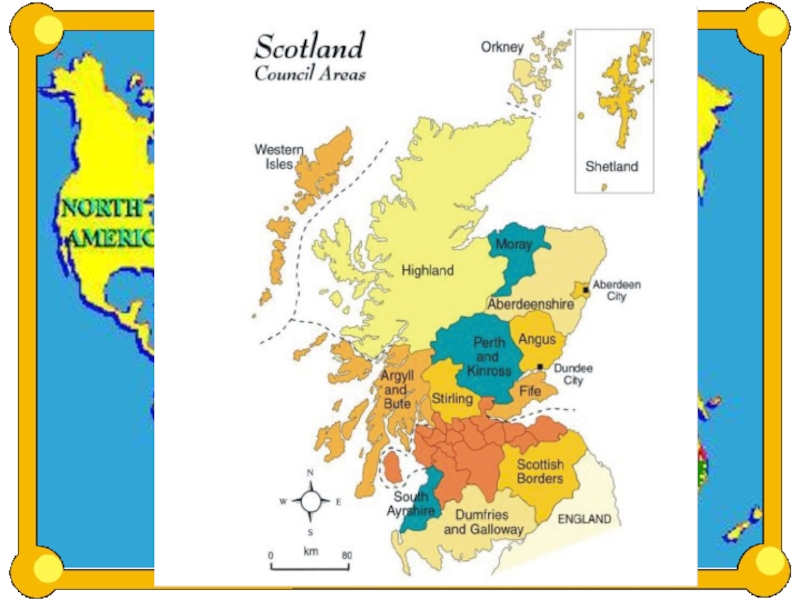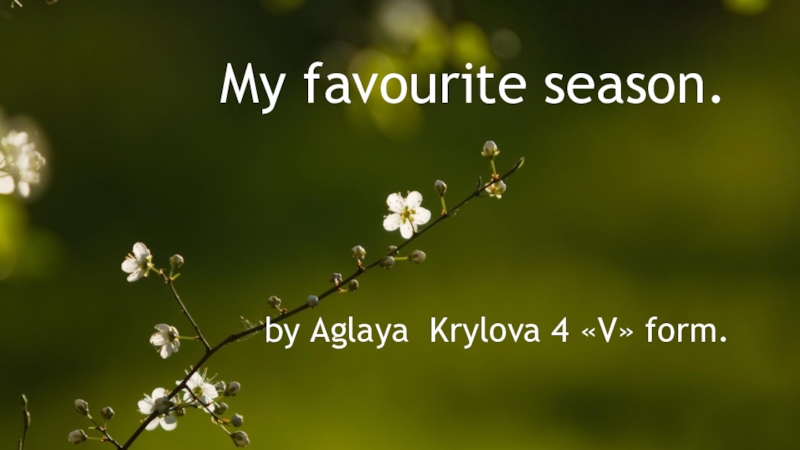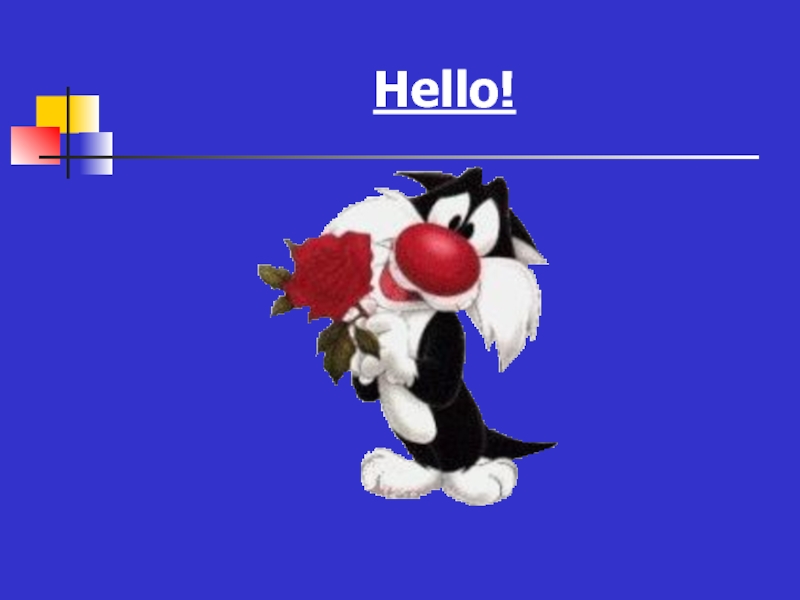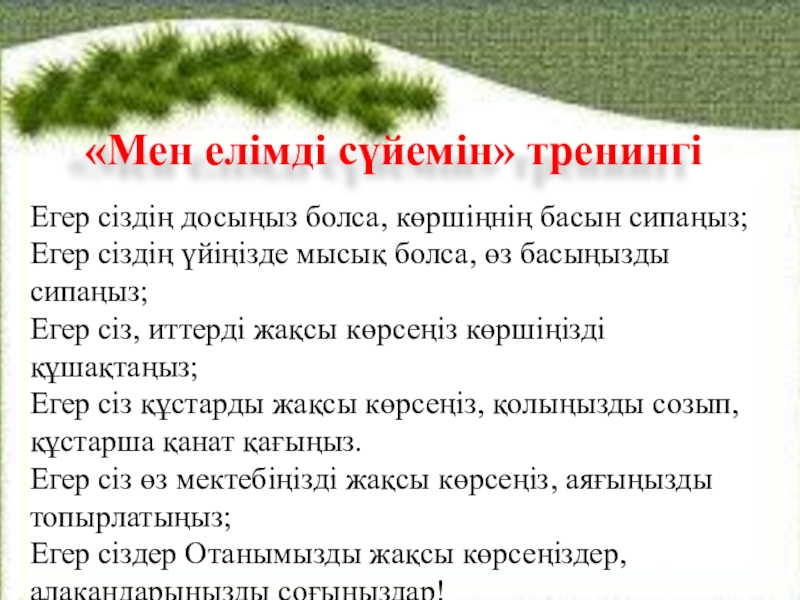- Главная
- Разное
- Образование
- Спорт
- Естествознание
- Природоведение
- Религиоведение
- Французский язык
- Черчение
- Английский язык
- Астрономия
- Алгебра
- Биология
- География
- Геометрия
- Детские презентации
- Информатика
- История
- Литература
- Математика
- Музыка
- МХК
- Немецкий язык
- ОБЖ
- Обществознание
- Окружающий мир
- Педагогика
- Русский язык
- Технология
- Физика
- Философия
- Химия
- Шаблоны, фоны, картинки для презентаций
- Экология
- Экономика
Презентация, доклад по английскому языку по теме: Food
Содержание
- 1. Презентация по английскому языку по теме: Food
- 2. a porridge[ʹpɒrıdʒ ]a cup of
- 3. a fish [æ fi∫ ] a
- 4. an ice-cream [æn ais kri:m]
- 5. a cup [æ kΛ p] a
- 6. Enjoy your English and sing the song
- 7. Read the dialogue:Billy: Have you got any
- 8. Спряжение глагола to be (быть) в Present
- 9. . Am I? Yes,
- 10. Спряжение глагола to work (работать)I, we, you,
- 11. Present Simple (Indefinite) Tense Настоящее простое (неопределённое)
- 12. For example (например)The earth goes round the
- 13. Мы используем do / does чтобы сформировать
- 14. for example (например)I get up at 8
- 15. Наречия, используемые в этом времениevery morning ( year, day, month etc.)oftenUsuallysometimes
- 16. Check yourself!The swimming bath ( to open)
- 17. Keys:The swimming bath opens at 9.00 and
- 18. PrepositionsПредлоги места и направления ГДЕ?
- 19. «Вопрос – хвостик»Основными функциями разделительных вопросов являются:
- 20. В второй части употребляется обратный порядок слов,
- 21. Note (примечание) Глагол to be в 1-м
- 22. Но если вторая часть вопроса положительно, то:
- 23. Ответ на разделительный вопрос. В разделительном вопросе говорящий
- 24. Test YourselfHe (to love) animals, …. he?
- 25. KEYSHe loves animals, does not he? He
- 26. The end
Слайд 2
a porridge
[ʹpɒrıdʒ ]
a cup of coffee
[æ kʌp ɔf kɔfi:]
a sweet [æ swi:t]
a glass of milk [æ gla:s of milk]
Слайд 4
an ice-cream [æn ais kri:m]
potatoes [pəteitouz]
[æ k æret]
a meal or becon [æ mi:l o: bəkon]
Слайд 6Enjoy your English and sing the song «I like Food»
I like food,
I like eating lots and lots of food.
Bread and jam, and meat, and fish,
Cakes and biscuits too,
Beans and mustard, eggs and chips,
Mutton steaks, potatoes, peas,
And salted mushrooms too.
Слайд 7Read the dialogue:
Billy: Have you got any sweets on sale?
Shop-assistant: Sorry,
Billy: Yes, please. Cold I have this cake?
Shop-assistant: Of course. Anything else?
Billy: No, that’s all, thanks.
Слайд 8Спряжение глагола to be (быть) в Present Simple Tense (Present Indefinite
I am I am not
He is He is not
She is She is not
It is It is not
We are We are not
You are You are not
They are They are not
Слайд 9.
Am I? Yes, I am.
Is he? Yes, he is. No, he is not.
Is she? Yes, she is. No, she is not.
Is it? Yes, it is. No, it is not.
Are we? Yes, we are. No, we are not.
Are you? Yes, you are No, you are not
Are they? Yes, they are No, they are not
Слайд 10Спряжение глагола to work (работать)
I, we, you, they – work
He, she,
Do you (they, we) work today?
Does he (she) work today?
Yes, I do. / No, I do not.
Yes, he does. / No, he does not.
Слайд 11Present Simple (Indefinite) Tense
Настоящее простое (неопределённое) время (I do)
I
we she drives
you drive it
they
Мы используем Present Simple когда речь идет о действии, которое происходит вообще, не обязательно в данный момент, если оно происходит постоянно, или повторяется. Нам не важно, происходит ли действие в момент речи:
Слайд 12For example (например)
The earth goes round the sun. (действие происходит постоянно)
Nurses
In Britain most of the shops close at 5.30 p.m. (повторяющееся)
Слайд 13Мы используем do / does чтобы сформировать вопрос и отрицание:
I he
we she
Do you work? Does it work?
they
Negative (отрицание)
I he
we she does not work
you do not work it
they
Слайд 14for example (например)
I get up at 8 o`clock every morning.
How often
Ann doesn`t often drink tea.
Tom usually plays tennis twice a week in summer
Слайд 15Наречия, используемые в этом времени
every morning ( year, day, month etc.)
often
Usually
sometimes
Слайд 16Check yourself!
The swimming bath ( to open) at 9.00 and
(to close)
What time the bank (to close) in Britain?
I have a car but I (not / to use) it very often.
"What (to do) you do?" "I (to do) my homework."
"Where your father (to come) from?"
"He (to come) from Scotland."
If you need money, why you (not to get) a job?
I (to play) the piano, but I (not to play) very well.
I don`t understand the word "deceive". What ("deceive" to mean)?
Слайд 17Keys:
The swimming bath opens at 9.00 and
closes at 18.30 every
What time does the bank close in Britain?
I have a car but I do not use it very often.
"What do you do?" "I do my homework."
"Where does your father come from?"
"He comes from Scotland."
If you need money, why you do not get a job?
I play the piano, but I do not play very well.
I don`t understand the word "deceive". What does"deceive" mean?
Слайд 18Prepositions
Предлоги места и направления
ГДЕ?
On the table (на столе) In the room ( в комнате)
On the sofa ( на диване) In the box (в коробке)
On the platform In the bag ( в сумке)
( на платформе)
КУДА? КУДА?
On the table (на стол) In the room ( в комнату)
On the sofa (на диван) In the box (в коробку)
On the platform In the bag ( в сумку)
( на платформу)
Слайд 19«Вопрос – хвостик»
Основными функциями разделительных вопросов являются: проверка предположения, запрос о
Разделительный (или расчлененный) вопрос состоит из двух частей: повествовательной и вопросительной.
Первая часть - повествовательное утвердительное или отрицательное предложение с прямым порядком слов.
Вторая часть, присоединяемая через запятую, представляет собой краткий общий вопрос, состоящий из местоимения, заменяющего подлежащее, и вспомогательного или модального глагола . Повторяется тот вспомогательный или модальный глагол, который входит в состав сказуемого первой части. А в Present и Past Indefinite, где нет вспомогательного глагола, употребляются соответствующие формы do/ does/ did.
Слайд 20В второй части употребляется обратный порядок слов, и она может переводится
You speak French, don’t you? Вы говорите по-французски, не правда ли?
You are looking for something, aren’t you? Вы что-то ищете, не правда ли?
Pete works at a plant, doesn’t he? Пит работает на фабрике, не так ли?
I can go now, can’t I?Я могу теперь идти, не правда ли?
Слайд 21Note (примечание)
Глагол to be в 1-м лице ед. числа (am),
Например:
I am busy, aren’t I ?Я занят, не так ли?
I am late, aren’t I ?Я опаздываю, не так ли?
Слайд 22Но если вторая часть вопроса положительно, то:
I am not busy,
2 . Если первая часть отрицательная, то во второй части употребляется утвердительная форма, например:
It is not very warm today, is it? Сегодня не очень тепло, не так ли?
John doesn’t live in London, does he? Джон не живет в Лондоне, верно?
You friend can’t speak English, can he?Ваш приятель не говорит по-английски, не так ли?
Слайд 23Ответ на разделительный вопрос.
В разделительном вопросе говорящий хочет получить подтверждение или
Слайд 24Test Yourself
He (to love) animals, …. he?
He (to be) your
You speak English, …. you?
You like coffee, … you?
You are clever, … you?
Уоu аrе tired, … you?
We like sweets, … we?
He can do it, … he?
Anybody can do it, …. they?
Your friend can help us, … he?
You are a student, …. you?
Слайд 25KEYS
He loves animals, does not he?
He is your brother, is
You speak English, do not you?
You like coffee, do not you?
You are clever, do not you?
Уоu аrе tired, do not you?
We like sweets, do not we?
He can do it, can not he?
Anybody can do it, can not they?
Your friend can help us, can not he?
You are a student, are not you?

![Презентация по английскому языку по теме: Food a porridge[ʹpɒrıdʒ ]a cup of coffee[æ kʌp ɔf kɔfi:] a a porridge[ʹpɒrıdʒ ]a cup of coffee[æ kʌp ɔf kɔfi:] a sweet [æ swi:t]a glass of](/img/tmb/1/89639/9a63cf7b852747ed03153800802c604b-800x.jpg)
![Презентация по английскому языку по теме: Food a fish [æ fi∫ ] a bread [æ bred] a a fish [æ fi∫ ] a bread [æ bred] a glass [æ gla:s] an apple [æ](/img/tmb/1/89639/e254fe717cb369b07914390318ae3952-800x.jpg)
![Презентация по английскому языку по теме: Food an ice-cream [æn ais kri:m] potatoes [pəteitouz] an ice-cream [æn ais kri:m] potatoes [pəteitouz] a](/img/tmb/1/89639/11e83f27e4f1e2bd48bfb07b78f381b2-800x.jpg)
![Презентация по английскому языку по теме: Food a cup [æ kΛ p] a jam or marmelade [æ a cup [æ kΛ p] a jam or marmelade [æ d3 æm o: ma:m əleid] salt](/img/tmb/1/89639/b1e25d5dbf74ebf9b3bbc661e2b4ceed-800x.jpg)


























